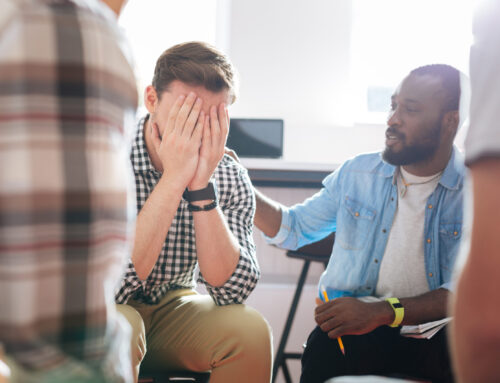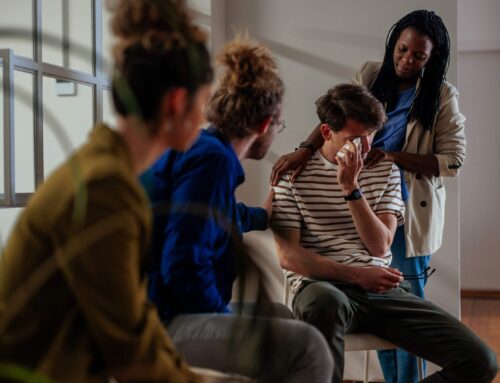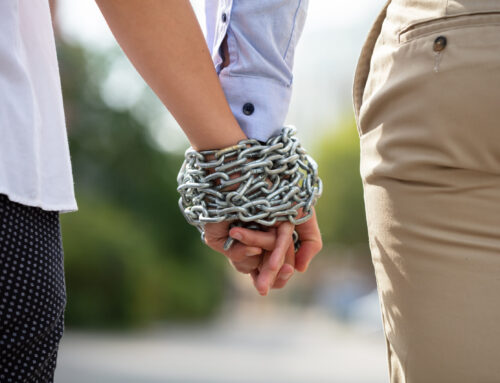
Why It’s Okay to Get New Friends
If you read our post about accountability, then you’d know that regardless of how you came to cope with your stressors through addiction, it’s your problem to fix. Yes, you’ll have help. Yes, you deserve compassion and understanding but know that change starts with you. Proper addiction treatment and counseling are paramount to successfully keeping yourself in recovery. However, all the counsel in the world may not be able to help you if the thing that drags you back time and time again is not your nature, but your nurture.
Addiction: With Friends Like These…
We’ve seen it all, from the most beautifully supportive family and friend groups that help their own through addiction to toxic friend groups that don’t want anyone to get sober. It’s unfortunate, but sometimes it’s necessary to leave your friend group if you hope to start life anew.
You cannot stay friends with your friends who use if you hope to start a new life of sobriety. It’s often one of the toughest aspects of getting into recovery. These are in many cases, people the addict has known for a majority of their lives, childhood friends, romantic partners, even family members. Fellow humans who you’ve shared not just the ups but the downs as well with.
Addiction and Friendships
Friendships and addictions interact principally two ways:
- The friends you had prior to your substance use disorder and/or the worsening of it will pose a threat or challenge to that addiction. Addiction can both isolate you and also keep you entrenched. Many people are not equipped to deal with someone who has a full-blown addiction issue. It can wreak havoc in so many ways on relationships and stability that inevitably, old friends eventually realize they must cut ties with the addict for two reasons. One is to prevent all their time and energy being sucked into the drama that addiction creates. The second is to show the addict that they will not enable their behaviors any longer and that if they can get clean they will gladly be friends once more.
- The second way is that friendship is predicated addiction itself. Unlike the first reason, old friends are left behind. Ask anyone who has been in the grips of an addiction of any sort—whether mild or extreme, if you can find other people to engage in that behavior with you, it becomes a social problem as well. You’re getting your social needs met through unhealthy behaviors. Self-destructive behaviors that are done in social groups end up being far worse because groups inevitably create isolating “us vs them” dynamics. Suddenly, it feels like if you try to go clean, you’re abandoning and betraying the group. Many people try to justify their behaviors by keeping others down with them, this is the “crabs in the bucket” phenomenon. When one crab tries to escape, the others crabs pull the escaping crab back down.
Old Habits Die Hard
Have you ever met up with your old friend group from school or an old job—the people you haven’t seen in years, and much to your surprise, upon reuniting with them you have snapped back into your old self? Years of growth, change, and development…temporarily erased. It’s mind-boggling, but at this moment you should realize that a big part of our behavior comes from our environmental cues. We are far more conscious of what our role is in our friend groups than we give credit for.
Now, maybe ordinarily this would just be a situation where you went from being your socially assertive and outgoing self to being the shy wallflower that you used to be. However, in the case of addiction treatment. Suppose that you’ve been in recovery for a couple of months, things are going great, then you hang out with some old friends who still use…and you relapse. You may feel guilty, you may be incredibly frustrated, but the fact remains.
There are many people in recovery who do end up going back to old friend groups and managing to help a few people get into treatment. They are an inspiration, but this takes a lot of strength and time spent in recovery to get used to the lifestyle and to become resistant to the temptation of falling back into old habits.
Addiction Consulting in Virginia
At Recovery Care Partner in Richmond Virginia, we’ve seen an array of circumstances that people who are in the grips of addiction find themselves in, and we’re always there to provide counsel and proper treatment. One of the things we see often is addicts who are unable to separate themselves from their old social circles where substance abuse is still rampant. Time and time again they relapse because the social and psychological factors involved with being in those groups is too much. This is why we specialize in offering post-treatment consulting and recovery care monitoring—our framework for ensuring the recovering individual has the perspectives they need to best avoid relapse on their own after they leave treatment.
If you or a loved one is suffering from a substance use disorder, please do not hesitate to contact us here or give us a call at (240)-224-3509.
Table of Contents







